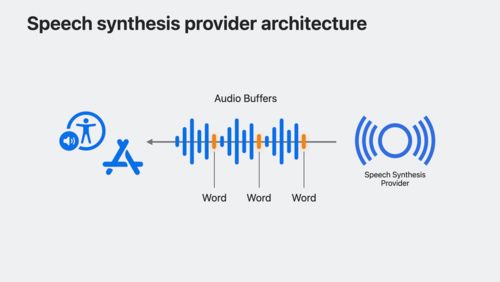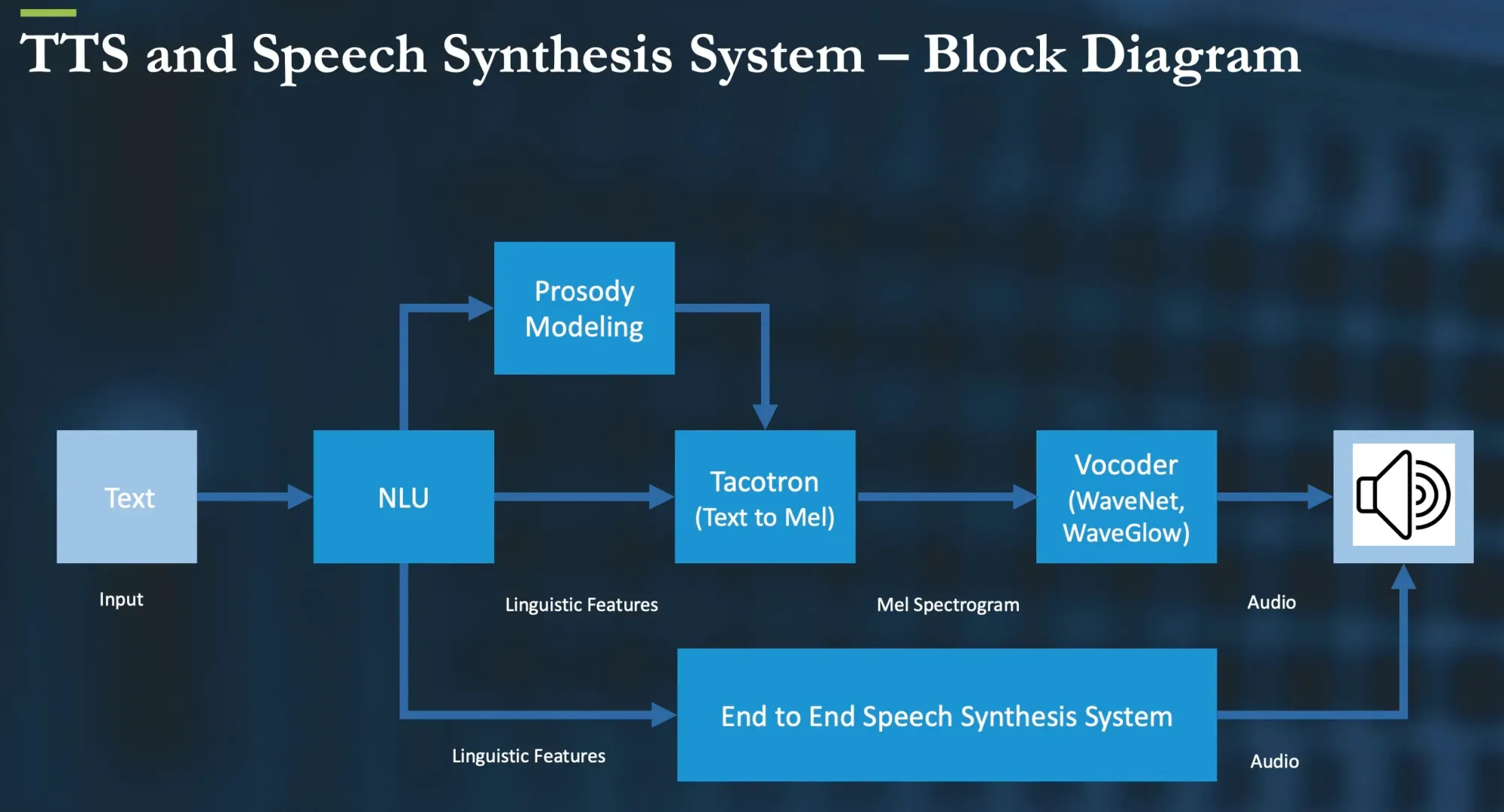Exploring TTS Synthesis with Unreal Speech API – Enhance Your Audio Projects

Unveiling Unreal Speech: The API Shaping the Future of TTS Tech
The advent of Unreal Speech's API marks a significant milestone in the evolution of Text-to-Speech (TTS) technology, offering groundbreaking solutions that redefine the essence of synthetic vocal communication. As the digital environment demands more intuitive and human-like interactions, Unreal Speech steps up to meet these expectations by delivering TTS synthesis that boasts remarkable voice quality and versatile functionalities. With its API's capability to transform text into auditory speech, it presents an array of opportunities for enhancing user engagement, from interactive storytelling to hands-free content consumption, making it an invaluable asset for developers and content creators alike.
Recognizing the importance of accessibility in today's age, Unreal Speech's API has been meticulously optimized for the year 2023, paving the way for TTS technologies to become more immersive and inclusive. Gone are the days of robotic monotones; the API brings forth a spectrum of voices — each with nuanced inflections and natural-sounding tones. This transformation spearheaded by Unreal Speech empowers developers, researchers, and engineers to craft digital solutions that connect with users on a deeper level, ushering in an era where technology speaks in a language everyone understands.
| Topics | Discussions |
|---|---|
| TTS API Overview | Introduction to the Text-to-Speech API landscape and Unreal Speech's pivotal role in advancing TTS technologies. |
| Transforming Speech Synthesis | Exploring how Unreal Speech's API is revolutionizing the text-to-speech industry with advances in digital speech synthesis. |
| Unreal Speech API Impact | Understanding the profound effect of Unreal Speech's TTS API on user engagement and accessibility in the digital landscape. |
| Coding with TTS API | Programming guides and techniques for effectively integrating and customizing the Unreal Speech TTS API within software projects. |
| Applications of TTS | Discussing the wide array of applications that benefit from TTS technology, from e-learning platforms to interactive games. |
| Common Questions Re: TTS Tech | Addressing common inquiries surrounding the implementation and processes involved in TTS technology. |
TTS API Overview
The Text-to-Speech (TTS) API landscape is a dynamic field, brimming with terminology that encapsulates the technological strides in audio synthesis. Familiarity with this glossary is essential for American university research scientists, software engineers, and laboratory professionals delving into TTS and audio development using Python, Java, and Javascript. Understanding these key terms provides a solid foundation for grasping the functionalities and advancements of TTS systems, thereby enhancing their creation and application of user-centric audio solutions.
TTS (Text-to-Speech): A type of assistive technology that reads aloud digital text.
API (Application Programming Interface): A set of protocols for building and interacting with software applications.
Synthesis: The process of combining elements to form a coherent whole. In TTS, it refers to creating spoken words from text.
Deep Learning (DL): An AI function that mimics the human brain in processing data and creating patterns for decision-making.
Machine Learning (ML): An AI subset that enables machines to learn from data and improve their performance over time.
Neural Networks (NN): Computer systems modeled after the human brain that are designed to recognize patterns and interpret data.
Speech Synthesis: The artificial production of human speech.
Natural Language Processing (NLP): The AI domain that focuses on the interaction between computers and human language.
User Engagement: The initiative to keep a user interested and interacting with a system or platform.
Operational Efficiency: A measure of how well a system uses its resources to achieve its goals.

Transforming Speech Synthesis
The article "2023's Top TTS API - Transforming Speech Synthesis," published by Unreal Speech on October 6, 2023, presents an in-depth look at TTS APIs that have revolutionized the way digital content is consumed. These APIs transform static textual information into dynamic audio outputs, enhancing digital interactions across various interfaces. By converting text into auditory speech, this TTS API reshapes content engagement, making digital platforms more inclusive and accessible for diverse user groups.
The advancements detailed in the 21-minute article signify a notable leap in 2023, indicating that the featured TTS API is on the cutting edge of technology, providing ease of use and integration that could vastly improve user experience. This TTS API promises not only to revolutionize user engagement but also to create new opportunities for efficiency and innovation in numerous industries. The capacity to integrate natural-sounding speech synthesis seamlessly into applications has become an indispensable asset for developers and businesses.
Optimized for performance in 2023, Unreal Speech's API is a testament to the significant contributions such technologies offer in terms of improving operational efficiency in businesses and user interaction with tech products. The transformative nature of the TTS API suggests its potential to play a central role in the evolving digital landscape, meeting the growing demands for more interactive and responsive content. While the article is authored by Unreal Speech, it reflects a collective endeavor by individuals associated with the development and enhancement of TTS technologies.
Unreal Speech API Impact
Unveiled in 2023, the Unreal Speech TTS API stands out as a juggernaut in the world of speech synthesis, delivering on the promise of enhanced user interaction and heightened auditory experiences. Its robust architecture and state-of-the-art algorithms have granted developers the power to imbue their applications with voices that offer clarity, flexibility, and a striking semblance to human speech. By drastically reducing the effort needed to transform text into speech, the Unreal Speech API has democratized access to high-quality voice synthesis, making it a valuable addition to any developer's toolkit.
The ripples caused by the Unreal Speech API extend far beyond the technical feats it achieves; they signal a shift in the digital narrative where speech synthesis becomes part and parcel of everyday technology. In education, this TTS technology has made knowledge more accessible, while in entertainment, it has added a layer of authenticity to digital storytelling. For businesses, it has streamlined customer service, and in accessibility, it has opened new doors for those with reading or visual impairments.
Critical to the Unreal Speech API's success is its commitment to delivering high-quality speech experiences at a fraction of the cost. By making these technologies more cost-effective, Unreal Speech has not only cultivated a welcoming environment for innovation but has also ensured that cutting-edge TTS solutions are within reach for professionals across various sectors, whether they are looking to integrate TTS into established systems or experiment with new applications.
Coding with TTS API
Integrating TTS in Your Projects
Integrating Text-to-Speech (TTS) APIs into projects is made seamless with services like Unreal Speech, which offer APIs to easily transform text into speech. Programmers can incorporate the Unreal Speech TTS API using simple code snippets in their preferred programming language. While exact code samples from Unreal Speech are proprietary, the integration often involves making HTTP requests to the API endpoint and handling the response data to play or save the synthesized speech audio.
Below is an example of how a Python snippet using requests might appear:
import requests
response = requests.post(
'https://api.v6.unrealspeech.com/stream',
headers = {
'Authorization' : 'Bearer YOUR_API_KEY'
},
json = {
'Text': '''<YOUR_TEXT>''', # Up to 1,000 characters
'VoiceId': '<VOICE_ID>', # Scarlett, Dan, Liv, Will, Amy
'Bitrate': '192k', # 320k, 256k, 192k, ...
'Speed': '0', # -1.0 to 1.0
'Pitch': '1', # 0.5 to 1.5
'Codec': 'libmp3lame', # libmp3lame or pcm_mulaw
}
)
with open('audio.mp3', 'wb') as f:
f.write(response.content)Customizing TTS Output
For developers requiring more control, customizing the TTS output can include adjusting parameters such as voice type, language, speech rate, pitch, and volume. Such flexibility allows for a tailored UX design and can match the TTS output to specific context requirements or user preferences in the application.
A JavaScript example utilizing an HTTP client library (e.g., Axios) to interact with a TTS API might be structured as follows:
const axios = require('axios');
const fs = require('fs');
const headers = {
'Authorization': 'Bearer YOUR_API_KEY',
};
const data = {
'Text': '<YOUR_TEXT>', // Up to 1,000 characters
'VoiceId': '<VOICE_ID>', // Scarlett, Dan, Liv, Will, Amy
'Bitrate': '192k', // 320k, 256k, 192k, ...
'Speed': '0', // -1.0 to 1.0
'Pitch': '1', // 0.5 to 1.5
'Codec': 'libmp3lame', // libmp3lame or pcm_mulaw
};
axios({
method: 'post',
url: 'https://api.v6.unrealspeech.com/stream',
headers: headers,
data: data,
responseType: 'stream'
}).then(function (response) {
response.data.pipe(fs.createWriteStream('audio.mp3'))
});The JavaScript code sends a POST request to the API, providing all necessary details, and then processes the server's response to handle the synthesized audio.
Applications of TTS
Unreal Speech's TTS synthesis API brings to the table a host of benefits across various fields. Academic researchers can utilize the service to generate spoken versions of their written materials, facilitating accessibility and aiding in linguistic studies. The TTS API's cost-effectiveness means that universities and research institutions can invest more in research activities instead of spending on expensive TTS technologies.
Software engineers and game developers benefit immensely from Unreal Speech's TTS API due to the lower costs and its claims of superior audio quality compared to other major services like Amazon Polly. The TTS service is incredibly scalable, perfect for developing applications that require natural-sounding, human-like speech synthesis, ranging from educational software to immersive gaming environments.
Educators stand to gain from the API's multilingual support and the ability to process a massive volume of characters monthly. This means creating diverse learning materials in various languages is now more feasible. The API's promise of delivering high-quality listening experience supports the creation of interactive and engaging educational content, enhancing the learning experience in the classroom and beyond.
Common Questions Re: TTS Tech
How Do AI Tools Drive Text-to-Speech Quality?
AI tools propel the quality of text-to-speech (TTS) by employing data-driven models that are designed to mimic the nuances and intonation of human speech, thereby producing more natural and understandable audio output.
Which Free AI Voice Generators Excel in Performance?
Free AI voice generators that excel in performance are those that incorporate flexible features, such as varied linguistic tones and emotional expressiveness, while being accessible without a steep learning curve for users.
What Makes an AI Voice Generator Stand Out?
An AI voice generator stands out based on its ability to accurately replicate human-like speech, offer a wide range of languages and dialects, and provide customization options to adapt to different scenarios and applications.